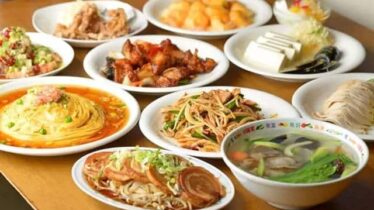GoEast’s Guide to Popular Chinese Superstitions & Beliefs
Chinese culture is rich with fascinating and sometimes strange superstitions that have developed over thousands of years. From numbers and colors to animals and food, Chinese superstitions influence many aspects of everyday life and business in China.
Understanding common Chinese superstitions provides meaningful cultural insights. It can also help avoid embarrassing faux pas when traveling or doing business in China.
Numbers in Chinese Superstitions
Numbers play a special role in Chinese superstitions. Certain numbers are considered lucky or unlucky based on how they sound, look, or align with spiritual beliefs.
4 (sì) – An Unlucky Number
The number four is extremely unlucky in Chinese culture. In Mandarin, four 四 (sì) sounds very similar to the word for death 死 (sǐ).
Buildings in China often skip the 4th floor, similar to how many American buildings skip the 13th floor. Giving gifts in sets of four is also taboo.
8 (bā) – The Luckiest Number
The number eight is the luckiest number in Chinese culture. This is because the word for eight 八 (bā) sounds similar to words for prosperity and wealth 发 (fā).
In China, phone numbers and addresses with as many eights as possible are highly desirable. Prices often contain strings of eights for good fortune. Weddings and major events are also often scheduled on dates with the number eight.
6 (liù) – Symbolizing Smooth Sailing
The number six represents smooth sailing and success in Chinese culture. This is because 六 liù sounds similar to the Chinese word 流 (liú) meaning to flow or move smoothly.
Gifting items in sets of six brings well wishes for a smooth journey ahead. Phone numbers and addresses with sixes are also considered fortunate.
More GoEast’s Resources about Numbers in Chinese:
- Post: Lean to Count from 1 to 10 in Chinese
- Video: How to Count in Chinese
- Chinese for Kids: Chinese Numbers with Jenny 老师
- Video: How to read 3-digit numbers in Chinese
- Video: Gestures for 0-10 in China
- Video: Getting Someone’s Phone Number in China
Colors in Chinese Superstitions
Colors also hold symbolic meaning in Chinese superstitions. Wearing or using certain colors is thought to affect one’s fortune and luck.
Red 红 (hóng) – Happiness and Good Fortune
Red is the color of happiness, prosperity, and good luck in Chinese culture. Red is ubiquitous during Chinese New Year and other holidays and celebrations.
Red decorations are also commonly found at weddings, shops, and homes. Red pockets with money are given as gifts, and red clothing is worn to bring good fortune.
Read more: Why do Chinese People Like the the Color Red?
Gold 金 (jīn) – Wealth and Glory
The color gold represents wealth and glory in Chinese superstitions. This stems from ancient China when only royalty could wear gold colored garments.
Today, gold symbolizes high social status. Giving gold colored gifts demonstrates respect. Gold is also considered a lucky color for businesses.
Green 绿 (lǜ) – Harmony and Health
The color green represents living energy and the balance of yin and yang in traditional Chinese culture. It is thought to promote health and harmony.
Jade, a shade of green, was precious and worn by emperors. Today, jade pendants are gifted for blessings of harmony.
However, it’s important to avoid wearing or gifting Hats in Green that could be interpreted as a “绿帽子” (lǜ mào zi).
The phrase “绿帽子” lǜ mào zi refers to a green hat, but it metaphorically represents having an unfaithful spouse who is being intimate with another person outside the marriage. So a man wearing a “绿帽子” implies his wife has been unfaithful to him, or vice versa.
More GoEast’s Resources about Colors in Chinese:
Post: skin color in Chinese
Video: Colors in Chinese
Unlucky Colors to Avoid
On the flip side, certain colors are considered unlucky in Chinese superstitions. Avoiding these colors is thought to prevent misfortune.
White 白 (bái) – Death and Mourning
White clothing is worn at Chinese funerals, so the color white symbolizes grief, death, and mourning.
Avoid wearing white or giving white gifts, which may be seen as inauspicious. White flowers and decor are also taboo at celebrations like weddings or birthdays.
Unlucky Animals in Chinese Folklore
Certain animals are considered inauspicious in Chinese mythology and culture. Depictions of these creatures and products derived from them should generally be avoided.
Bats 蝙蝠 (biān fú) – Balancing Act Between Good and Bad
Bats symbolize good luck and happiness since the word 福 (fú) sounds similar to the word for blessing (fú). But they also represent darkness and death.
So bats are a contradictory symbol – not completely good or bad. Bat motifs can be found in artwork and textiles for good fortune. But live bats are seen as spooky omens.
Lucky Animal in Chinese Superstitions
On the positive side, certain animals represent good fortune in Chinese superstitions. Depictions of these creatures and products using their parts can bring luck and prosperity.
Goldfish – Abundance and Surplus
Goldfish symbolize an abundance of wealth, success, and positive energy in Chinese culture. Their bright gold color connects to money and riches.
Goldfish are common decorations and gifts, especially during Chinese New Year. They represent hopes for prosperity in the coming year.
Elephants -Strength and Wisdom
Elephants represent power, strength, and wisdom in Chinese folklore. Elephant figurines are placed by entrances to bring protection.
Miniature ivory tusks from elephants are lucky pendants. But actual ivory trade is now illegal due to endangering elephants.
Pigs – Wealth and Good Fortune
Pigs are the most auspicious animals in Chinese culture. The written character for pig (zhū) is part of the word for house or home (zhūzhái). So pigs represent wealth for one’s household.
Decorative piggy banks and pig figurines attract good financial fortune. Baby pig charms are popular New Year’s gifts.
More GoEast’s Resources about Animal in Chinese:
- Video: What does “Throw a long line to catch a big fish” mean in Chinese 放长线钓大鱼(fàng cháng xiàn diào dà yú)
- Video: Cat slave 猫奴(māo nú)
- Video: How to Say “Paper Tiger” in Chinese
Fortuitous Flowers and Plants
Certain flowers and plants are considered lucky in Chinese culture. Decorating with or gifting these natural elements brings blessings and well-wishes.
Orchids – Elegance and Refinement
Orchids represent nobility, elegance, and refinement in Chinese culture. White orchids specifically symbolize youthfulness and integrity.
Orchids are popular Chinese wedding flowers. They can be given as housewarming gifts or displayed to enrich one’s culture. But avoid sending orchids to sick people.
Bamboo – Resilience and Vitality
Bamboo represents strength and resilience in Chinese folklore, as it bends but does not easily break. It also symbolizes vitality and fast growth.
Bamboo makes up the ubiquitous lucky bamboo plant given for prosperity and blessings. Bamboo decor adds positive energy.
Peonies – Honor and Prosperity
Peonies are known as the king of flowers in China. They represent honor, prosperity, and a happy marriage.
Peonies frequently appear at weddings and are given to newlyweds. They can also decorate businesses wishing for success.
Pomegranates – Fertility and Abundance
Pomegranates symbolize fertility and offspring in Chinese culture due to their plentiful seeds and bright ruby color. They also mean abundance and good luck.
Pomegranates are common at weddings. But avoid in mourning since fertility has negative connotations then. Mini pomegranate decor brings prosperity.
Plum Blossoms – Perseverance and Renewal
Plum blossoms represent perseverance and renewing life in springtime. Their fragrant flowering while snow remains symbolizes overcoming adversity.
Use plum blossoms as New Year’s decorations for a fresh start. They can also represent starting anew after hardships.
Peach Blossoms – Longevity and Femininity
Peach trees bear fruit representing longevity and immortality in Chinese culture. Their lush pink blossoms symbolize feminine beauty and sexuality.
Peach blossoms make lovely springtime gifts. But avoid giving dying peach blossoms, which foreshadow a doomed romance.
Read more: Flowers in Chinese
Left Eye Twitching Superstition Meaning in China
In Chinese culture, a twitching left eye is considered an auspicious sign and harbinger of good fortune. The saying “左眼跳财 (zuǒ yǎn tiào cái)” which translates to “left eye twitching brings wealth,” reflects the belief that spasms in the left eye foretell incoming prosperity or financial gains. The longer the twitch lasts, the greater the impending luck is believed to be. Some may interpret it as a sign to seize opportunities or make fortuitous investments. To welcome this favorable omen, some practices recommend gently massaging the left eye or expressing gratitude.
Right Eye Twitching Superstition Meaning in China
Conversely, a twitching right eye in Chinese belief is viewed as an unlucky omen according to the proverb “右眼跳灾(yòu yǎn tiào zāi)” meaning “right eye twitching invites disaster.” Spasms in the right eye are thought to portend approaching misfortune, arguments, or other negative events entering one’s life. The intensity of the twitching may signify the severity of the forthcoming issue. To dispel this superstition, some may opt to tie a red string on the right wrist, avoid mundane chores for the day, or simply express hopes that the bad luck will bypass them.
Putting Superstitions in Practical Perspective
This covers the origins and symbolism behind many common Chinese superstitions. But most modern Chinese people do not rigorously adhere to all these folk beliefs today.
Superstitions provide insight on cultural perspectives – but need not dictate every decision if unwanted. Take a practical view by:
- Considering context and personal views when applying superstitions. Avoid superstitions with negative modern associations.
- Respectfully asking Chinese friends and colleagues if they have any practices to honor or avoid. Customize gestures based on their comfort levels.
- Finding wisdom and meaning in superstitions while balancing logic and skepticism. Seek ethical cultural engagement.
The mystifying world of Chinese superstitions developed from history, linguistics, and spirituality over millennia. Use this foundations knowledge to build thoughtful cross-cultural connections in work and life today.
+10.000 satisfied Chinese language students.







